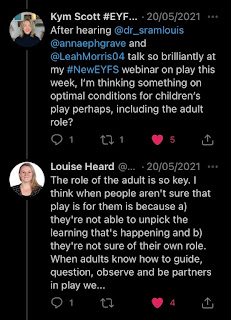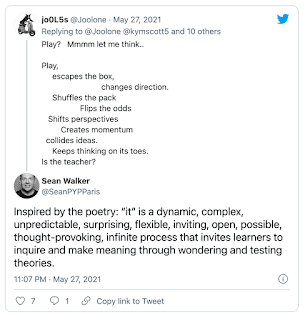How do we describe the young children we teach?
What words do you use to refer to the young children we teach in Early Years? In the PYP, Early Years children are 3-6 year olds. Children? Students? Little ones? Kiddos? Learners? Littlies? Kindies? Small people? Kids? Young people? Littles? Youngsters? Pupils? Other words? What inferences might people make about young children and our views based on the words we use to describe them? Does it matter? Is it enough to have good intentions? Why might these differences exist? Culture? Our image of the child? ... What terms do we use as we talk to the children themselves? Is our language inclusive? What do our choices reveal about how we view children, learning and our own roles as adults?

